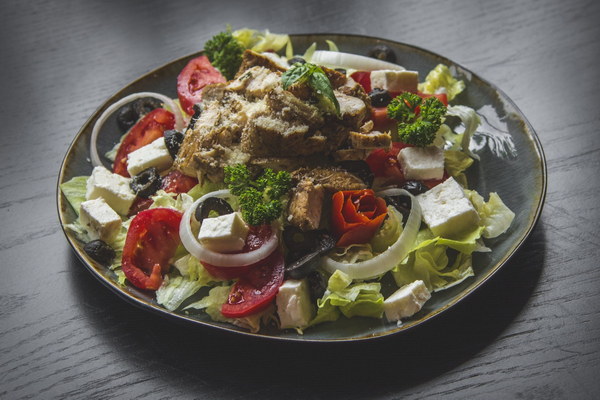The Nutritional Benefits of Pigeon Meat A Traditional Remedy for Modern Health
Introduction:
In the realm of traditional medicine, pigeon meat has long been revered for its numerous health benefits. Known as a superfood in many cultures, pigeon meat is believed to possess a variety of medicinal properties that can enhance overall well-being. This article delves into the nutritional benefits of pigeon meat, exploring its traditional uses and modern applications.
I. Rich in Nutrients:
Pigeon meat is a highly nutritious meat, packed with essential vitamins, minerals, and proteins that are vital for maintaining good health. Here are some of the key nutrients found in pigeon meat:
1. Proteins: Pigeon meat is an excellent source of high-quality protein, which is essential for muscle repair, growth, and maintenance of healthy bones and tissues.
2. Vitamins: Pigeon meat is rich in vitamins such as B6, B12, and E, which play a crucial role in regulating the body's metabolism, maintaining a healthy immune system, and supporting brain function.

3. Minerals: This meat contains essential minerals like potassium, iron, and selenium, which help in maintaining a healthy heart, supporting red blood cell production, and boosting the immune system.
4. Low in Fat: Pigeon meat is low in fat, making it an ideal choice for individuals looking to maintain a healthy weight and reduce their risk of heart disease.
II. Traditional Uses:
For centuries, pigeon meat has been used in traditional medicine to treat a wide range of ailments. Here are some of the traditional uses of pigeon meat:
1. Strengthening the Immune System: Pigeon meat is believed to boost the immune system, making it a popular choice for individuals suffering from frequent colds and flu.
2. Improving Digestion: Some traditional remedies suggest that pigeon meat can aid digestion and prevent constipation.
3. Enhancing Sexual Function: Pigeon meat is considered an aphrodisiac in some cultures, believed to improve sexual function and increase fertility.
4. Promoting Weight Loss: Due to its low-fat content, pigeon meat is often recommended for weight loss and weight management programs.
III. Modern Applications:
In recent years, the nutritional benefits of pigeon meat have gained recognition in the scientific community. Here are some modern applications of pigeon meat:
1. Sports Nutrition: Pigeon meat's high protein content makes it an excellent food for athletes, helping them recover from intense workouts and improve their performance.
2. Geriatric Nutrition: The combination of nutrients found in pigeon meat can help elderly individuals maintain their strength and vitality.
3. Chronic Disease Management: Pigeon meat's anti-inflammatory properties may contribute to the management of chronic diseases such as arthritis and heart disease.
Conclusion:
Pigeon meat, with its rich nutritional profile and traditional health benefits, is a valuable addition to a balanced diet. Its versatility in cooking and its numerous health benefits make it a popular choice for individuals seeking a natural way to enhance their well-being. However, as with any dietary change, it is essential to consult with a healthcare professional before incorporating pigeon meat into your diet, especially if you have any underlying health conditions.









